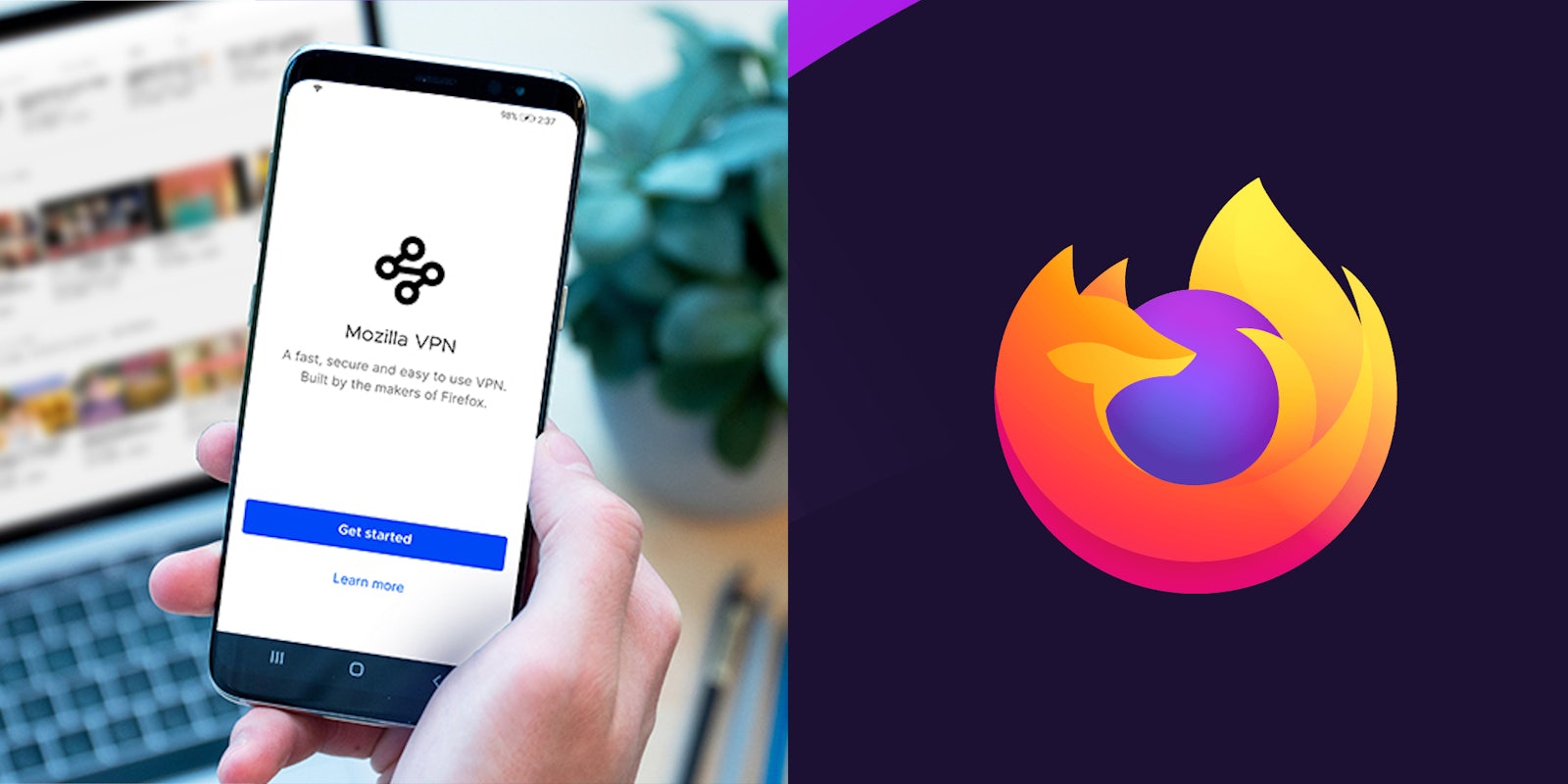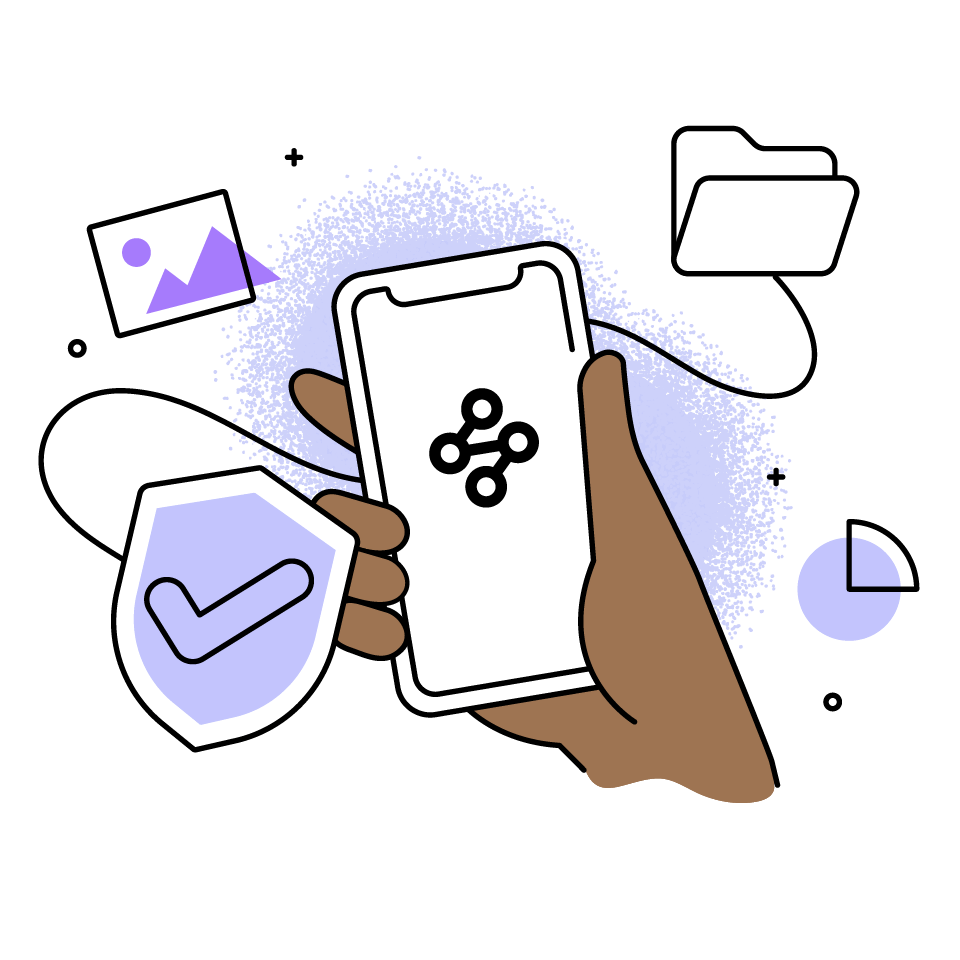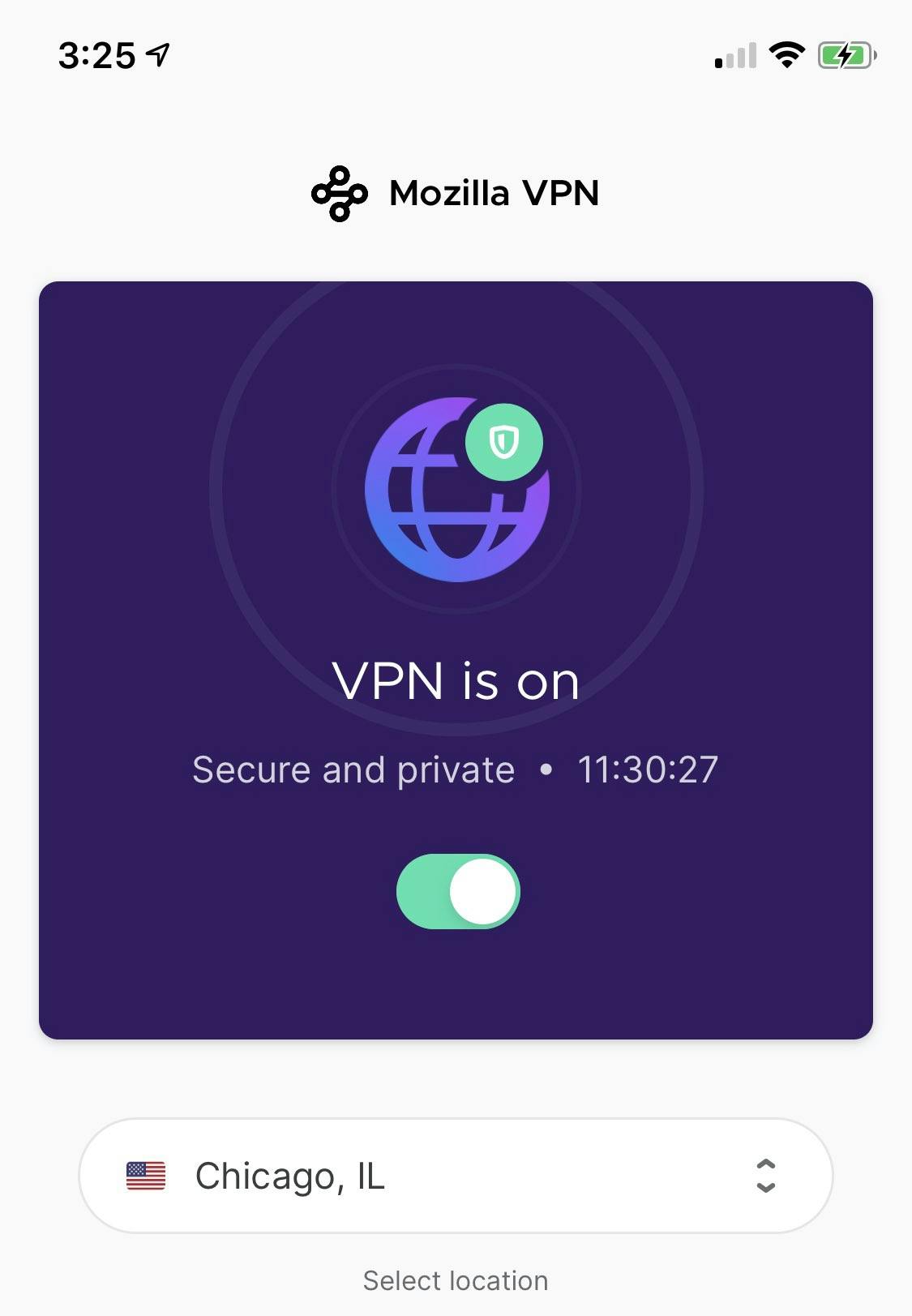The Mozilla Foundation is one of the “good guys” of internet freedom and digital security—if you’re in the know. For your average internet user who doesn’t know much about internet service providers (ISPs), encryption, or whatever“Wi-Fi” means, then they’re just the folks behind the really fast Google Chrome alternative Mozilla Firefox, if that.
In a world dominated by giant tech corporations that make money off your data, it’s understandable that a nonprofit that serves as the antithesis to Amazon, Facebook, and Google isn’t exactly front-and-center. But Mozilla is an underdog worth paying attention to because it doesn’t just create privacy-friendly, data-tracking averse software; it’s also incredibly accessible for the less technically inclined, including activists. Case in point, Mozilla Foundation just rolled out its virtual private network service Mozilla VPN this month, and it’s as easy to use as Firefox itself.
A virtual private network is a service that encrypts your internet traffic through a secure tunnel to a server that handles the request. VPNs can be used to mask your location and identity when visiting a website, encrypt your internet traffic on public Wi-Fi, hide your identity from some forms of police surveillance, and prevent your ISP from tracking your online activity.
Because VPNs rely on a series of servers across regions, they can also be used to access websites blocked by public Wi-Fi connections or on your work’s online traffic monitor. They’re also becoming more popular. At its peak on March 23, U.S. VPN use saw a 65% increase over its average, CNET reports. Investigative tech reporter Yael Grauer can’t pinpoint a specific reason why, although anecdotally, she believes “that it has more to do with remote work than social distancing.”
VPNs aren’t just tools for tech gurus or business workers dealing with highly sensitive data. If you’re looking up potentially incriminating information and are concerned about your ISP logging your internet traffic, a VPN acts as a barrier between you and your provider; your internet company simply handles the VPN request. If you’re regularly researching right-wing organizations or alt-right groups, VPNs give you additional security from having your IP address and location exposed to fascist web owners. A VPN won’t completely anonymize you or your location, especially if you’re logged into your Google Account or using a site through a Facebook login. But it does provide an initial line of defense against certain kinds of data tracking.
“I would not make it the first priority [for covering a protest], but I would recommend it for journalists actively investigating counter-protests, since a VPN can help partially conceal your location in the world from websites you may be visiting as part of the investigative process,” David Huerta of the Freedom of the Press Foundation told the Daily Dot.
There’s one caveat with VPNs: Because your internet traffic is handled through your VPN’s servers, your data is only as safe as the VPN you use. And while VPNs have become more accessible, Grauer said there are not “a lot of trusted competitors,” in part because many avoid transparency measures like security audits from a third-party or disclosing ownership. VPNs fundamentally know if you’re using their service, and if they record your internet traffic, it could be handed over to authorities, Huerta warned.
“Ultimately, a VPN company still needs to know whose internet connection to send data to when connecting through them. This means you have to trust a VPN provider to stay true to their privacy policy if they’re saying they don’t record, or ‘log’ your internet activities,” Huerta said. “Some VPN providers have broken that promise in the past, and some may do so in the future.”
That’s where the Mozilla VPN comes in handy for activists, including protesters. The foundation has a strong track record in data privacy that dates back decades, and Firefox is commonly considered one of the most secure browsers available today. Additionally, Mozilla has done its homework. The company partnered with Mullvad for VPN servers, one of the most trusted names in the VPN industry. In her article for the New York Times’ Wirecutter, Grauer hails Mullvad as having “comprehensive and transparent privacy practices” and said its connection protocol (or rules and instructions for creating an encrypted connection) WireGuard is “lightweight, quick, and easy to set up.”
Mullvad and Mozilla VPN both claim they do not log internet activity, with the latter promising its VPN falls under the foundation’s Data Privacy Principles and “only [collects] the most minimal data required to keep the VPN healthy and operational.” Both Huerta and Grauer approve of Mullvad and Mozilla’s privacy policy. Grauer, in particular, praised Mozilla VPN’s open-source structure and plans for a third-party security audit.
“There are a lot of VPNs that are popular, even some that maybe shouldn’t be, so it’ll be interesting to see how this one does,” Grauer told the Daily Dot. “Mozilla is definitely a company people trust for some very good reasons, including Firefox’s privacy by design, and I think that could definitely help.”
Access only costs $5 per month, and setting up your VPN is as easy as downloading Mozilla VPN onto your device and flipping the VPN switch. The program does the rest. This is one of Mozilla VPN’s biggest strengths: Its low cost and ease of use makes it a great VPN for marginalized users who are interested in improving their digital security but may not have the funds to afford more than $5 per month nor enough prior tech knowledge to properly vet other VPN companies.
Plus, the VPN’s performance is solid. On Windows, the VPN flawlessly handled a two-hour Zoom call and did not impact online performance in Team Fortress 2 Classic. Over Wi-Fi and a 4G LTE iPhone connection on iOS, the VPN remained connected with stellar online performance, albeit with some connectivity issues during a 4G FaceTime audio call.
In a statement to the Daily Dot, Mozilla said its security tools are designed to give users “peace of mind.”
“The ultimate goal of being able to serve you regardless of the device you run, what applications you use, or why you need an additional layer of privacy,” Mozilla said.
There are, however, some flaws in its VPN that users should keep in mind. WireGuard is still a new protocol, and as of yet, it hasn’t been tested to the same extent as other VPN protocols have, Huerta said. While he approves of the privacy policy in place, he recommends relying on a VPN that uses the OpenVPN protocol instead, given it has “years of being poked at by hackers and security researchers.”
“That being said, most of the alt-right groups being investigated would not necessarily have a lot of the hacking expertise to break WireGuard, so for this use case it might be okay to use a WireGuard VPN,” Huerta told the Daily Dot.
Of course, a VPN isn’t a magic bullet to all issues activists and journalists might face. Grauer stressed that a VPN does not provide anonymity and echoed Huerta’s point that VPNs that are seemingly log-free may end up “turning over logs to various government agencies” or become “compelled to turn over information” to the state. Additionally, the government “can track individuals’ browsing habits,” and there are myriad tactics police can use to locate and identify specific protesters. These include “license plate readers, face recognition, surveillance cameras,” Grauer said.
In other words, while a VPN can be a worthwhile investment, it may not be necessary depending on your role as a journalist or activist. This is where threat modeling comes in, which means figuring out what steps you need to take in order to protect yourself from potential security threats, such as the police, fascists, or identity thieves. Many security threats go far beyond digital safety, as activist and protest circles may be vulnerable to infiltration, harassment, physical encounters, or even state violence. This means “technical tools are not always great for real-world coercion, state violence, or police brutality,” Grauer said.
“Each individual group—and even different people playing different roles within the group—needs to figure out what information they’re trying to keep safe, who they’re trying to keep it safe from, for how long, and what the consequences are if they fail,” she told the Daily Dot. “I think it’s really important for people to understand what VPNs do and can’t do, and for activists to get individual assistance for their own unique goals and risks. (I recommend the Access Now digital security helpline.)”
It’s always a good idea to know what’s available in your digital safety toolkit, and Mozilla VPN is certainly a promising new service. Just make sure it’s the right fit for you—and that Mozilla VPN isn’t the only tool you’re using.
READ MORE:




